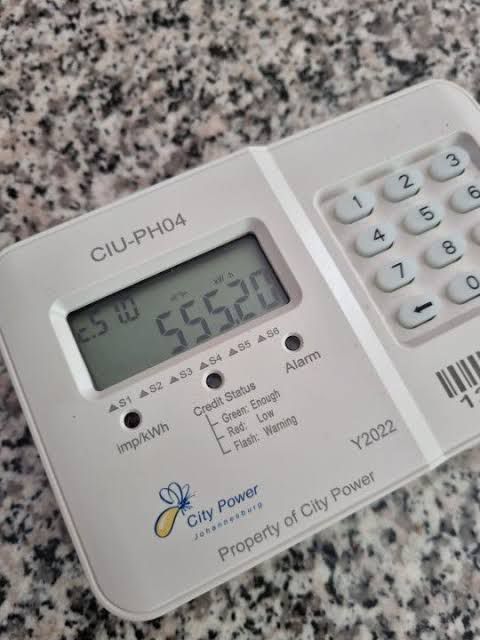Cogta does U-turn on alcohol transportation decision
By Kaya 959 News
The Department of Cooperative Governance and Traditional Affairs has recanted its earlier announcement on the transportation of alcohol during the Easter weekend.
On Thursday, Cogta Minister Nkosazana Dlamini Zuma warned that police will be manning roadblocks throughout the country and those caught with alcohol in their vehicles will be arrested.
However, her spokesperson Lungi Mtshali, later explained that if you buy alcohol from a restaurant, pub, bar or shebeen and take it home then you could get into trouble, but if you’re taking alcohol from your own house to a social event, you’re safe.
READ: Revised COVID-19 regulations prohibit the transport of alcohol during the Easter weekend
Speaking to Radio 702, Mtshali clarified that if a person is travelling with alcohol to a relative’s home, they won’t be breaking the law.
“The short answer is that yes, people can transport their own alcohol even between provinces. What is prohibited during the four days of the Easter weekend is the off-site sale of alcohol, so the bottle stores will not be opened but there are restaurants and taverns that will be opened. Some eating establishments have been flouting their licence conditions and have been selling alcohol to people for off-site consumption,” he said.
Mtshali said police will be monitoring these establishments over the long weekend.
According to National Liquor Traders Council national convener Lucky Ntimane, the updated level 1 lockdown regulations for the long weekend, did not say anything about transporting alcohol.
Weighing in on the earlier statement, liquor law attorney Danie Cronje, said the Minister’s statement was incorrect.
Taking to LinkedIn, he said; “The ‘new’ Regulation 81 dones not contain any prohibition on the transportation of liquor by the holders of liquor licenses or members of the public.”
Liquor traders have welcomed the partial alcohol ban.
CEO of the Connect Group, Steven Heilbron, said the brief pause on alcohol sales will leave taverns, pubs, restaurants and other venues for onsite consumption unaffected, while bottle store owners will be able to enjoy strong sales leading to Easter and still get to enjoy a long weekend with their families.
“Easter is traditionally a lucrative trading period for the alcohol sector. They depend heavily on peak trading times such as Christmas, Easter and other national holidays to make most of their income,” he said.
He said that despite the sigh of relief for the short ban on the sales of alcohol, the liquor industry which has already lost an estimated R36 billion over the previous three bans and is under pressure to recover from the impact of Covid-19.
“Though we often hear the voices of the brewers, distillers and distribution companies in the news, government and other commentators often lose sight of the fact that it is the small trader that gets hit hardest by each ban on the trading of alcohol. Taverns and bottle stores, for example, are often small family-run establishments operating on tight margins. Many taverns, restaurants and retailers have struggled under the financial pressure of the lockdown over the past year. For those that have survived and are now starting to recover financially, peak trading periods are valuable opportunities to make up losses,” Heilbron said.
He added that with an 8% rise in the excise tax on alcoholic beverages recently taking effect, companies involved in the alcohol supply chain face difficult times.
“Liquor traders must find ways to survive and grow their businesses. Now is the time for them to innovate, find ways to increase sales and profits and to be clever about how to outsmart their competitors,” he said.
Picture source: Cogta Facebook page
Written by: Poelano
Alcohol ban alcohol sales alcohol south africa Cogta nkosazana zuma nkosazana zuma alcohol
Similar posts
MORE ARTICLES

SA Powerball Results for tonight: Tuesday, 01July 2025

Zenande Mfenyana captures viewers’ hearts as Thumeka on ‘Inimba’

WATCH: Scorpion Kings begin preparations to ‘Fill Up’ Loftus Stadium

The best of Point of View: DA dares Ramaphosa, Nairobi protests turn deadly and Chrispin Phiri in the spotlight

New month brings new electricity bills for City Power customers
QUICK LINKS
UpComing Shows

The Best T in the City
With T Bose
He has held it down in the world of mid-morning radio with the best music, riveting topics, brilliant mixes and interesting guests. Every weekday, The Best T proves why he is the BEST by connecting to you like only your bro or favourite uncle could. He lets his listeners dictate the songs they want to hear in the ever-popular Top 10 at 10, and his Three Teaspoons never run out. Catch The Best T in the City Mondays to Fridays from 09h00 to 12h00.
close
Feel Good
With Andy Maqondwana
Feel good about feeling good! That's exactly what The Feel-Good show is about. An escape from the negativity that surrounds us, indulging you in good feels. Pass it on to one and all. Spread the good feeling around Gauteng with Andy Maqondwana.
close
Kaya Biz
With Gugulethu Mfuphi
The world of business is simplified for you by Kaya Biz with Gugulethu Mfuphi. This fast-paced award-winning business show talks to the corporate giants as well as up and coming entrepreneurs about their wins and challenges. Gugulethu invites guests to offer their analyses of markets and economies, and also delves into issues of personal financial wellness. Kaya Biz airs Mondays to Thursdays 18h00 to 19h00.
close
Point of View
With Phemelo Motene
Point of View with Phemelo Motene delves into the day’s current affairs, touches on real issues that affect people’s daily lives and shares expert advice on questions posed by the audience. Mondays to Thursdays 20:00 to 22:00.
closeConnect with Kaya 959
DownLoad Our Mobile App
© 2025 Kaya 959 | On The Street On The Air











